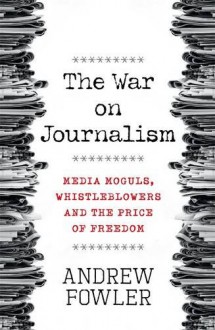
Maxed out is a story of cheap credit and how the banking system has enslaved a middle class who cannot afford to pay it back. The author journeys across the United States speaking to people who have fallen into the debt trap and exposes how the banks do not necessarily make money from interest but rather from the fees (particularly overdraft fees). In fact the banks make more money lending money than by having it paid back simply because they either package up the debt into securities which they then sell to investors, or they sell the debt to debt collection agencies which then use many tricks to get the money back. What this book demonstrates is that the banks want you to be in debt, and want you to be addicted to debt because they make more money from minimum payments than they do by having the debt paid back. Even then, the money that they lend out is not necessarily theirs anyway - it is yours, if you have enough money to save in the first place.
There are a number of issues that should be explored in this particular commentary, and I felt that a simple paragraph really just brushes over the issues in this book (and accompanying documentary, or is it the other way around). To me there are two types of debt, investment debt and consumer debt. In a way investment debt, while risky, is better than consumer debt because the debt is used to leverage one's ability to generate an income stream. This can be an overdraft with a bank that a business can draw upon to pay its outgoings, particularly when one has a slow period, or it can be a margin loan, which is used to purchase securities, whether in the form of shares, bonds, or managed funds. While this form of debt is risky, if used right it can raise one's ability to generate an income. However, this documentary is not about investment debts (or leverage) but consumer debt.
Now, as far as I am concerned, consumer debt is bad, very bad. The idea is to buy now and pay later. In one sense it can create an ability to purchase a house (though in my mind this is more an investment debt) or a car without the need to save up the money. It may be necessary to have a car sooner rather than later, particularly if the car is needed for work. However, people use consumer debt to live a lifestyle that they simply cannot afford. New television, couch, holidays. In a sense it gives one the ability to live like a king for a day, and the consequences can be kicked down the road to deal with another day. However there is a catch: once the money is spent, and the object consumed, there is still a hangover - the debt and the interest payments that accompanies it. Moreso, once one tastes that high life through debt, one wants more, and more, and more. As such it becomes a drug, and a very seductive and addictive drug at that.
Remembering that this book deals with debt in America, in some ways it can be applied to other countries as well. We here in Australia are protected by a consumer credit code that restricts the ability of lenders to ensare people into debt slavery, however it does happen. A friend at work suddenly decided she wanted to take her family on an overseas holiday, but did not want to save, so she and her husband borrowed the money, saying that they will worry about the consequences later. However, from experience (not through debt as I am debt free – with the exception of the student loan, but unlike America, that debt is held by the government and you pay it back in the same way you pay tax, that is it is automatically deducted from your pay once you hit a certain threshold), the thrill and exhilaration of an overseas holiday is so addictive that you simply cannot come back and resume your normal life – you want to go back again, and again, and again. While I may justify my desire by ditching the word holiday and replacing it with 'research excursion' in reality I have become addicted to the thrill and simply want to justify my desire to re-experience that thrill.
I guess one of the most shocking things that I discovered from this book is how the credit card companies prey upon young university students. The first thing they see when they arrive at the campus are the multitude of stalls where companies are flogging off credit cards. Remember, they do not actually want us to pay the debt back, but rather continue to gouge us with interest payments and fees and charges. The banks are not concerned either because they have already packaged the loan up as a security and onsold it so that they get all of their money back, and then these loans are merged and packaged up, with bad loans being tied together with good loans, and onsold as AAA securities. In the end these securities end up forming parts of our superfunds so that these companies are screwing us around both ways. Not only are they diverting our income streams to repaying interest, but they are also taking our savings and replacing them with worthless IOUs. To further protect them, they insure the loans so that if the person does go bankrupt, and they lose their capital, they call on the insurer, who then pays up. The belief was that the insurer would never have to pay up, however this all unravelled in 2008.
This book, though, was written prior to 2008 so the consequences of this debt binge had not come to light. However this corporate debt binge, which almost collapsed the world economy, was dealt with through government bailouts. Yet there was never any bailout for the millions of people reduced to debt slavery. George Bush, at the insistence of the credit card companies, even changed the bankruptcy laws so that the debtees could not even hide behind that either. One might suggest that these people are responsible for their own position, but when we consider that innocent people are caught by the actions of others cannot be ignored. There is no healthcare in America, nor is their any government funded tuition. As such if you get sick you have to borrow money, and if you want to go to college you have to borrow money. I borrowed money from the government for my tuition, and the government has said that I can play it back once I reach a certain income level. This is not the case in the United States. Once you borrow the money for university, interest begins to accrue, and it may be at least four years before you begin your first proper job, and you are already saddled with a huge debt, and this is before the wedding, the house, and the kids.
At the beginning we are told of a story of a man who has had to declare bankruptcy, but was it his fault? Not necessarily, namely because his wife had incurred huge debt, dumped it onto him, and then ran off debt free. Stories like this make me glad that I am not married. It also makes me raise the question of debt early on in a relationship, but once again, like many other things in life, relationships bring risk, and it is how we respond to risk and how we tackle it that can determine the course of our life. However, the otherside is that consumer debt is not risk, or if it is, it is much higher than other forms of ris, because the risk is that you will not be able to pay it back, and even if you can, in the end the money you pay in interest, and even in principle, is dead money because your consumable is not generating an income and the interest payments are simply paid so that you can live as a king for a day and then deal with the hangover later. Unfortunately, the hangover will always be there, and in many cases, it will never go away.

 Log in with Facebook
Log in with Facebook 









